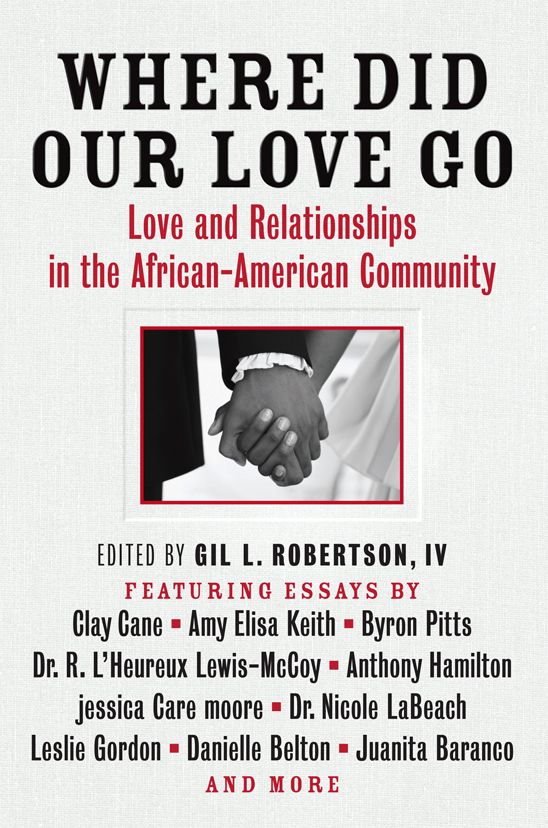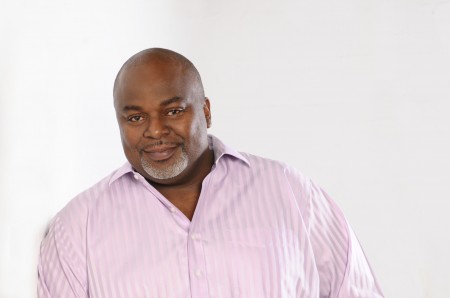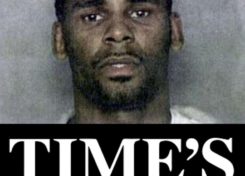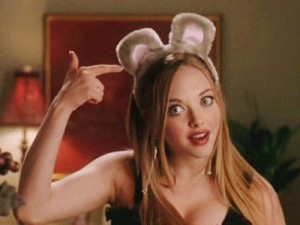Raise your hand if you’re tired of the assembly-line of smug and self-congratulatory ‘relationship manuals’ written by folks like Tyrese and Steve Harvey that make Black women into paupers and Black men into princes that are always right and always capable of moving on if WE don’t care enough to acquiesce.
Yawn.
Fortunately, however, Atlanta-based lecturer, author and editor, Gil Robertson has released a collection of poems and essays entitled Where Did Our Love Go: Love & Relationships In The African-American Community.. Filled with passages about personal experience and written by a variety of private citizens and popular celebrities (such as Clay Cane, Byron Pitts, Freda Payne, Robertson himself and Anthony Hamilton, to name a few), Where…. adds sparks to the conversation without throwing gasoline on either sex in the process. Here’s what Mr. Robertson had to say during a recent phone conversation about the state of Black Love, why more men need to step it up and his personal views about “swirling” and the “baby-mama/baby daddy” syndrome that’s overly-plagued our communities.
MOTHER OF COLOR- I’m loving the hopeful tone and the poignance throughout the book Mr. Robertson, thanks for speaking with me today.
GIL ROBERTSON- Glad you reached out to me, thank you.
MOC- I had to, your book is such a refreshing change of pace from the other ones geared towards African-American readers. What do you think has lead to the explosion of male authors lecturing to Black women on the how-to’s of relationships?
GR- “It’s probably because they think that it’s an important discussion that we all need to have a conversation about and be a part of. My particular book is part of a series of African-American lifestyle anthologies that tackle the critical issues in our communities allow the communities voices to be heard. My first one was to simply tell my family’s story and how we dealt with my brother becoming HIV positive (Not In My Family: AIDS In The African-American Community ), and when I took it to the publishers, the suggestion was made to include other races and that project was very successful. I also used that approach to write Family Affair, What It Means To Be African-American Today and stuck with the analogy format. We pulled from a lot of different sub-groups within the african-American community, from the LGBT community, from people who were Creole, Gullah, Black people from all walks of life, because our goal was to provide the voice to the whole community. it’s important that we proide that platform.”
MOC-There’s a trend these days, as far as relationship books and life at large, for Black men to make Black women the fault of all of their problems. Some Black women do it of course, but the dialogue as far as African-Americans is more anti-woman than anything else. Why do you think that is and what can we all do to change it?
GR- “I don’t really know what the deal is with brothers. Black people in this country need a mental health break, we’re beleaguered, constantly under attack from so many different sides and no one gets that harder than African-American men. It’s a challenge. I think I might create another anthology just about Brothers, one that focuses on the hows and whys of Black men, because because there’s a lot going on with us, and what makes us tick. How can we do better for ourselves and for our families?”
MOC- Well, with Snoop Lion confessing that he always wanted to be a pimp and other prominent brothers acting like they can’t get away from the sisters fast enough….
GR- “Oh wow. Why [would Snoop] bring forth that type of example as a man? A lot of Black people look to the wrong role models. The people in the entertainment industry are entertainers and people shouldn’t be taking their viewpoints so literally and seriously. We need to stress to ourselves and to our children the importance of looking for role models who are going to empower us in a way that is productive for our lives. That may not be fun and it may not be sexy, but that’s the truth. There’s a time and a place for everything and now is the time to be purposeful and productive. that’s the message that we need to give to our children. There’s also a time to realize, especially as a man, that you grow up and need to be responsible so you can do things and create a wonderful life for yourself.”
MOC- Back to your book for a minute: I enjoyed your essay, “The Clock Is Still Ticking,” and I was shocked that men are stigmatized for being single just like women are.
GR- “That’s right; If you’re a man who hasn’t been married by a certain age, you come across as severely dysfunctional. It’s no secret that people are waiting later to get married, but if you’re not married by 35, it really starts to be a bad look from all sides: how your family sees you, your friends and peer groups, it can even have an effect on your professional life as well because being married prescribe to the type of stability that corporate companies look for. Even if you’re not married and happen to have kids, people are willing to give you a pass. But for you to be a man of a certain age, expecially a Black man, without a history of marriage or long-term relationship, people start to look at you as being really strange. It makes you seem irresponsible and like a narcissist, and neither one of those things are good looks. (laughs) More and more brothers are opting to play the fied, or as in my case, they become so consumed by their careers that, almost accidentally, marriage takes a second seat and you get so caught up professionally that you lose sight of something that just as important, if not more so, which is finding a mate and building a life together. I just looked up one day and said ‘Damn, I’m 47. I gotta turn this around quickly!'” (cracking up)
MOC- Another aside I wanted to to get into with you is the notion that we Blacks are racist if WE aren’t into interracial relationships, but other races that intermarry one-another are simply ‘preserving their heritage and culture.’ How did our loving yourself start translating into ‘you all hate others’? How do we keep our sons from wanting to marrying out?
GR- “I think Blacks have bought into this whole notion of multiculturalism too much. There’s certain aspects of it that are fantastic, but Black folks can come out at the losing end. It’s my opinion and I dont expect anyone else to embrace it, but for me it’s absolutely true: there’s no greater asset that a black man can have in his life other than a black woman. She is going to be your ride-or-die chick and roll dawg til the end. I’m convinced of that. She gets it, she gets you, they understand you on the level that really matters and where it really counts. That doesn’t say that other women don’t have great qualities, but the black woman comes out on top and I say that unapologetically.”
MOC- See, that’s why I’m Team Gil, right there. Now, here’s another issue that fracturing our families, the over-embracing of single parenthood. When did ‘marriage’ become such a negative to us and what can we do to correct that mindset?
GR- “I don’t know where that mindset came from, but it’s time that we adapt a new one. We need to actively encourage marriage and stress the benefits of what if can do for you. I think it’s about priorities; there’s nothing attractive about purposely becoming a single parent. it took two people to bring you here so there should also be two people responsible for you. We need to encourage our kids to adapt a different mindset as to what’s important and what they should aspire to and try to emulate it. It’s not a good look. We can see on our streets what the outcome has been as a result of having so many single-parent homes. There’s almost anarchy out there in the streets at the hands of young black people who didn’t have the structure and examples on how to live productive lives.”
MOC- See, I can’t sum it up any better than that. Thank you again for carving out time for me and for dropping such an inspirational and insightful book Mr. Robertson, I wish you all the best.
GR- “It was a great conversation, I appreciate it. We’re hopeful that Where Did Our Love Go? will cause people to re-prioritize where marriage is on their list of things that are important, or at least consider changing certain aspects of their behavior that might be keeping them from finding their life’s mate. Hopefully, through the dialogues that this book can inspire, it will lead to more of us heading in that direction.”




